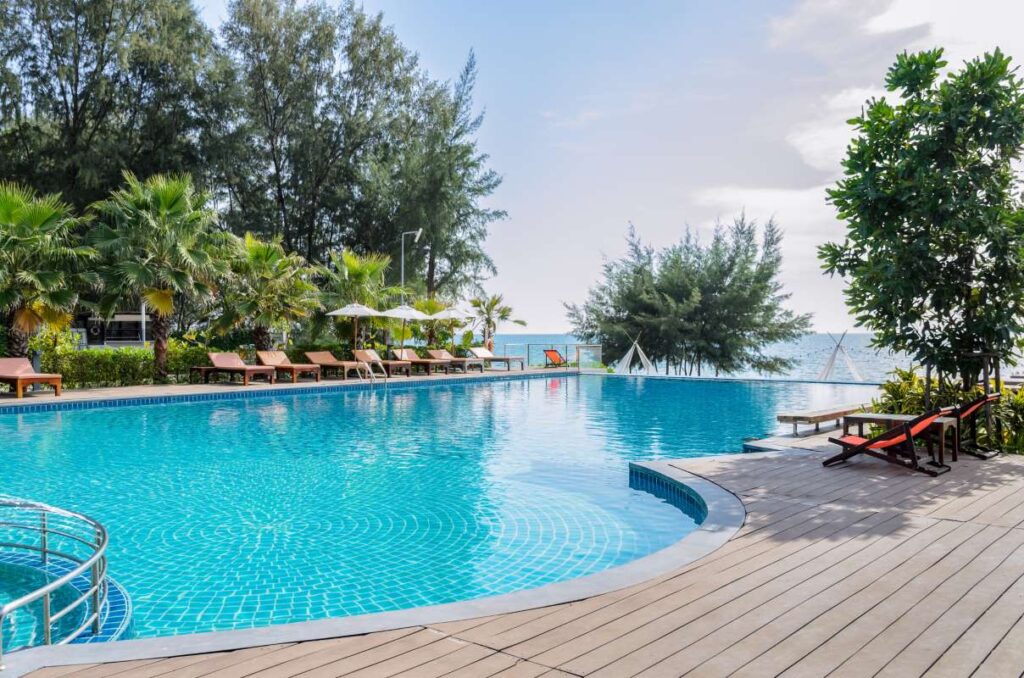Measuring the Environmental ROI of Your Pool Route Changes
Discover how measuring the environmental ROI of your pool route changes can enhance sustainability and profitability in the pool service industry.
This blog post delves into the importance of evaluating the environmental return on investment (ROI) when making changes to your pool service routes. As the pool maintenance industry faces increasing scrutiny over its environmental impact, understanding how to measure and improve your ecological footprint can not only benefit the planet but also enhance your business’s bottom line. We will discuss key metrics, strategies, and case studies that highlight the significance of environmentally conscious decision-making in optimizing pool routes and services.
Introduction
In recent years, sustainability has become a major focus across all industries, and the pool service sector is no exception. As service providers seek to reduce their carbon footprints, the concept of measuring the environmental ROI of pool route changes has gained traction. But what does this entail, and why is it crucial for pool maintenance businesses? When service providers assess their operational practices, they often miss a critical component: the environmental impact of their service routes. Pool maintenance involves not only the physical upkeep of pools but also the transportation of technicians and equipment, the chemical treatments used, and the energy consumed during service calls. By examining these elements, businesses can identify opportunities for improvement that enhance both environmental sustainability and financial performance. This article will guide you through measuring the environmental ROI of your pool route changes, highlighting practical strategies to achieve a greener operation while maintaining profitability.
Understanding Environmental ROI
– Definition and Importance: Environmental ROI refers to the benefits derived from investments made in sustainable practices relative to the costs incurred. In a pool service context, this can involve assessing the reduction in carbon emissions from optimizing routes, the savings achieved through reduced chemical usage, and the overall improvement in sustainability.- Key Metrics to Consider: – Fuel Efficiency: Track fuel consumption per route and identify opportunities to reduce travel distances. – Chemical Usage: Measure the types and amounts of chemicals used per service to evaluate the impact on water quality and safety. – Energy Consumption: Assess the energy used for equipment and operational activities, considering renewable energy options where feasible.- Example: A pool service company operating in Florida analyzed the fuel consumption of its technicians. By switching to more fuel-efficient vehicles and optimizing routes, they reduced their fuel costs by 20%, resulting in significant savings while also lowering their carbon emissions.
The Role of Technology in Measuring Environmental Impact
Technology plays a vital role in effectively measuring the environmental ROI of your pool routes. Utilizing advanced software and tools can streamline route planning and monitoring processes.- Route Optimization Software: By implementing software solutions designed specifically for the pool service industry, businesses can gain insights into the most efficient route combinations. This not only minimizes travel time and fuel consumption but also enhances service delivery.- Data Tracking and Analytics: Incorporating data tracking into your operations enables you to quantify your environmental impact. For instance, you can track the average fuel consumption per route, the number of chemical treatments applied, and the resulting chemical runoff into local waterways.- Case Study: A company using specialized route optimization software reported a reduction in average travel time by 30%, which translated to lower fuel costs and reduced greenhouse gas emissions. This technology allowed them to not only save money but also promote their commitment to sustainability, attracting eco-conscious customers.
Implementing Sustainable Practices in Pool Routes
To effectively measure the environmental ROI of your pool route changes, it’s essential to adopt sustainable practices throughout your operations. Here are some strategies to consider:- Switching to Eco-Friendly Chemicals: Evaluate the chemicals used in pool maintenance. Transitioning to biodegradable and less harmful alternatives can reduce the environmental footprint of your services.- Efficient Scheduling: Organize service calls based on geographical proximity and cumulative workload. This reduces the amount of time technicians spend on the road and maximizes service efficiency.- Training and Awareness: Equip your team with the knowledge and skills to implement sustainable practices. Consider programs like
Pool Routes Training, which can help your staff understand the importance of environmentally friendly practices.- Monitoring and Reporting: Establish a system for tracking and reporting environmental metrics. Regularly review this data to identify trends, successes, and areas for improvement.
Communicating Your Commitment to Sustainability
Once you have made strides in measuring and improving your environmental ROI, it’s crucial to communicate these efforts to your clients and stakeholders.- Marketing Your Initiatives: Highlight your commitment to sustainability through your marketing materials. Use your website, social media, and customer interactions to share the steps you are taking to reduce your environmental impact.- Client Education: Educate your clients about the benefits of sustainable pool maintenance practices. By informing them of your eco-friendly methods, you can increase customer loyalty and attract new environmentally conscious clients.- Showcasing Results: Share case studies and data showing the positive outcomes of your changes. For example, you could report on how much you’ve reduced your carbon footprint or the financial savings achieved through sustainable practices.- Testimonials: Encourage satisfied clients to provide feedback that highlights your commitment to sustainability. You can showcase these endorsements on your website through the
Pool Routes Testimonials section.
Conclusion
Measuring the environmental ROI of your pool route changes is not just a trend; it is a necessity for modern pool service providers aiming to thrive in a competitive market. By understanding the metrics that matter, leveraging technology, and implementing sustainable practices, your business can significantly reduce its environmental impact while also enhancing profitability.As you embark on this journey towards sustainability, remember that every small change contributes to a larger goal. Embrace the opportunity to lead your industry in creating environmentally friendly practices, and communicate your commitment to both existing and potential clients. For those looking to enhance their operations and join the growing movement towards sustainability, consider exploring options available through
Pool Routes For Sale. Connect with us at
Superior Pool Routes for more information on how we can support your journey in the pool maintenance sector.



